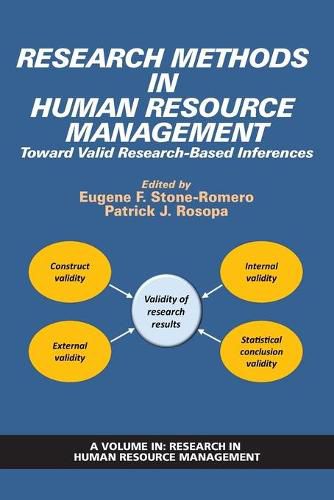Readings Newsletter
Become a Readings Member to make your shopping experience even easier.
Sign in or sign up for free!
You’re not far away from qualifying for FREE standard shipping within Australia
You’ve qualified for FREE standard shipping within Australia
The cart is loading…






This title is printed to order. This book may have been self-published. If so, we cannot guarantee the quality of the content. In the main most books will have gone through the editing process however some may not. We therefore suggest that you be aware of this before ordering this book. If in doubt check either the author or publisher’s details as we are unable to accept any returns unless they are faulty. Please contact us if you have any questions.
Empirical research in HRM has focused on such issues as recruiting, testing, selection, training, motivation, compensation, and employee well-being. A review of the literature on these and other topics suggests that less than optimal methods have often been used in many HRM studies. Among the methods-related problems are using (a) measures or manipulations that have little or no construct validity, (b) samples of units (e.g., participants, organizations) that bear little or no correspondence to target populations, © research designs that have little or no potential for supporting valid causal inferences, (d) samples that are too small to provide for adequate statistical power, and (e) data analytic strategies that are inappropriate for the issues addressed by a study. As a result, our understanding of various HRM phenomena has suffered and improved methods may serve to enhance both the science and practice of HRM.
In view of the above, the purpose of this volume of Research in Human Resource Management is to provide basic and applied researchers with resources that will enable them to improve the internal validity, external validity, construct validity, and statistical conclusion validity of research in HRM and the related fields of industrial and organizational psychology, and organizational behavior. Sound research in these fields should serve to improve both science and practice. With respect to science, support for a theory hinges on the validity of research used to support it. In addition, the results of valid research are essential for the development and implementation of HRM policies and practices.
In the interest of promoting valid research-based inferences in HRM research, the chapters in this volume identify a wide range of methods-related problems and offer recommendations for dealing with them. Chapters in it address such HRM research-related topics as neglected research issues, causal inferences in research, heteroscedasticity in research, range restriction in research, interrater agreement indices, and construct validity issues in measures of such constructs as job performance, organizational politics, and safety climate.
$9.00 standard shipping within Australia
FREE standard shipping within Australia for orders over $100.00
Express & International shipping calculated at checkout
This title is printed to order. This book may have been self-published. If so, we cannot guarantee the quality of the content. In the main most books will have gone through the editing process however some may not. We therefore suggest that you be aware of this before ordering this book. If in doubt check either the author or publisher’s details as we are unable to accept any returns unless they are faulty. Please contact us if you have any questions.
Empirical research in HRM has focused on such issues as recruiting, testing, selection, training, motivation, compensation, and employee well-being. A review of the literature on these and other topics suggests that less than optimal methods have often been used in many HRM studies. Among the methods-related problems are using (a) measures or manipulations that have little or no construct validity, (b) samples of units (e.g., participants, organizations) that bear little or no correspondence to target populations, © research designs that have little or no potential for supporting valid causal inferences, (d) samples that are too small to provide for adequate statistical power, and (e) data analytic strategies that are inappropriate for the issues addressed by a study. As a result, our understanding of various HRM phenomena has suffered and improved methods may serve to enhance both the science and practice of HRM.
In view of the above, the purpose of this volume of Research in Human Resource Management is to provide basic and applied researchers with resources that will enable them to improve the internal validity, external validity, construct validity, and statistical conclusion validity of research in HRM and the related fields of industrial and organizational psychology, and organizational behavior. Sound research in these fields should serve to improve both science and practice. With respect to science, support for a theory hinges on the validity of research used to support it. In addition, the results of valid research are essential for the development and implementation of HRM policies and practices.
In the interest of promoting valid research-based inferences in HRM research, the chapters in this volume identify a wide range of methods-related problems and offer recommendations for dealing with them. Chapters in it address such HRM research-related topics as neglected research issues, causal inferences in research, heteroscedasticity in research, range restriction in research, interrater agreement indices, and construct validity issues in measures of such constructs as job performance, organizational politics, and safety climate.